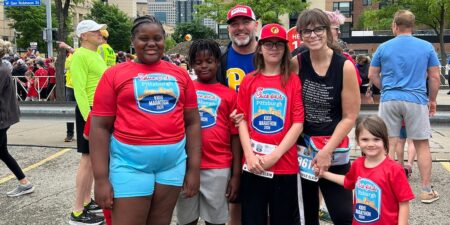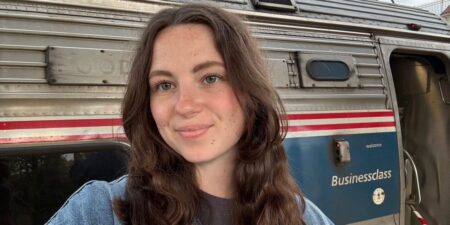When I picked up my 13-year-old daughter from school, I could tell something was off the moment she got in the car. She didn’t greet me with her usual chatter, just stared out the window with red, puffy eyes and shrugged when I asked, “How was your day?” After a bit of gentle prompting, it all came out: her closest friend, her partner-in-crime since the third grade, had suddenly stopped talking to her. No argument. No explanation. Just silence.
My heart sank. As a parent, nothing prepares you for the moment when your child is hurting in a way you can’t fix. My instinct was to jump in, to call the friend’s parents, demand an explanation, and set things right. But I stopped myself. As much as I wanted to protect her, I knew this was one of those moments she had to face on her own. I needed to be her guide, not her fixer.
She needed my reassurance
We talked that night. I listened more than I spoke. She didn’t need solutions; at least not right away. She needed to feel heard. She was hurt and confused, asking questions no 13-year-old should have to sit with: “Did I do something wrong?” “Why would someone just stop being my friend?” “What’s wrong with me?”
And so, I started there. With the reassurance that nothing was wrong with her.
I explained that sometimes, especially during the teenage years, friendships shift. People change. Interests evolve. Sometimes people drift away without a clear reason, and while it hurts, it’s not always about something we did or didn’t do. That’s a hard truth for anyone to accept, especially a young girl navigating identity, belonging, and self-worth.
I also needed to help her feel empowered
Over the next few weeks, I watched her go through what I could only describe as a miniature heartbreak. She questioned herself. She cried quietly. She tried to reconnect. And when those attempts were met with indifference, she began to withdraw.
That’s when I gently stepped in, not to fix it, but to empower her.
I talked to her about conflict and communication. How it’s okay to ask for clarity, and how to do it with confidence and kindness. We role-played what she could say if she wanted to have a conversation with her friend. I reminded her that while she can’t control how someone else behaves, she can choose how she responds.
About a month later, just when it seemed like the chapter had quietly closed, her friend messaged her out of the blue and asked if she wanted to meet at the park. My daughter stared at the screen for a long moment. Then, calmly, she replied, “Maybe another time.” It wasn’t petty, it was a boundary. One she’d chosen for herself, on her terms. I didn’t say much, but inside, I swelled with pride. She wasn’t waiting to be chosen or chasing after answers anymore. She had learned to weigh her own worth, without my interference.
She learned resilience
The truth is, that experience shaped her in a way I never could have. It taught her resilience. It deepened her empathy. It gave her the tools to navigate relationships with more awareness and maturity.
As a parent, standing back was one of the hardest things I’ve ever done. But I learned that support doesn’t always mean stepping in. Sometimes it means standing besides, holding space, and trusting that your child has what it takes to make it through, even when it hurts.
Now, months later, my daughter still talks about that friendship occasionally. Not with bitterness, but with perspective. She’s grown. She’s more cautious about who she lets in, but also more open to new possibilities.
And I’ve grown, too. I’ve learned that part of raising emotionally strong children is letting them experience uncomfortable feelings. Not sheltering them from every storm, but equipping them with the confidence and tools to weather it. Because they won’t remember whether we fixed the problem. They’ll remember whether we stood with them as they figured it out.
And in that, there is healing for both of us.
Read the full article here
















